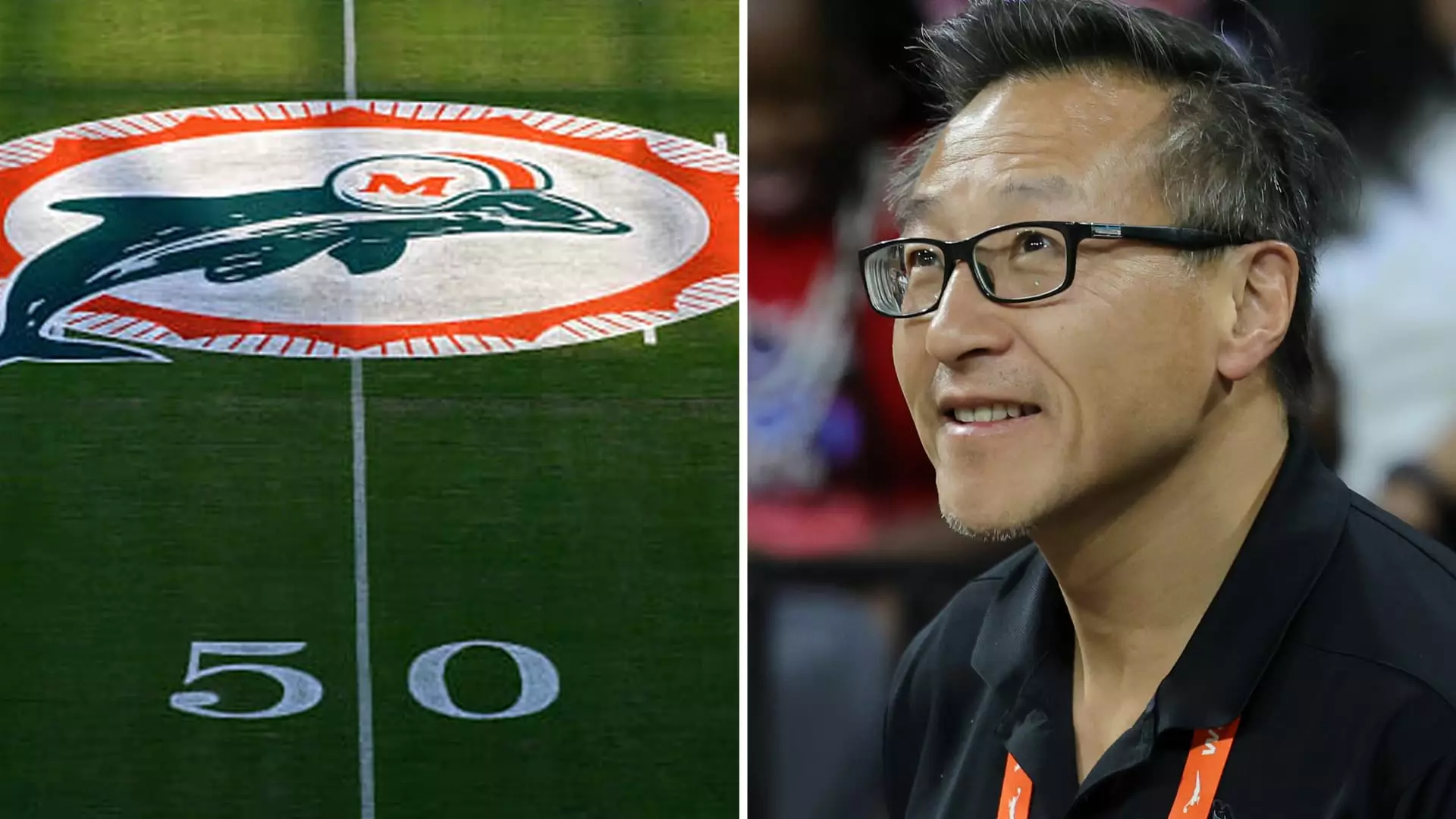The Miami Dolphins have found themselves at the forefront of a significant shift in the sports ownership landscape. Recent developments signal a growing trend where sports franchise owners increasingly seek to expand their portfolios, focusing on acquiring minority stakes in other teams and capitalizing on lucrative real estate opportunities linked to their franchises. The Dolphins are currently in advanced discussions with Ares Management, a prominent private equity firm, and billionaire Joe Tsai to sell a minority stake in the team. This potential deal reflects not only the evolving financial mechanisms within sports but also the broader economic strategies that owners are employing to amplify their revenues.
The Valuation of a Franchise and Its Assets
According to sources familiar with the proposed negotiations, the combined valuation of the Miami Dolphins, along with the operating rights for Hard Rock Stadium, the Miami Grand Prix F1 event, and approximately half of the Miami Open tennis tournament, stands at an impressive $8.1 billion. This valuation, while substantial, suggests that the assets—if viewed under a controlling stake—would be valued at over $10 billion. Such figures reveal the considerable economic potential that comes with sports franchises today, where the interplay of franchise ownership and real estate can yield tremendous financial returns. The Dolphins have already demonstrated their worth by generating revenue of $673 million in 2023, further accentuating the franchise’s financial strength.
Private Equity’s Entry into NFL Ownership
This potential investment marks a historic moment as it would be the first instance of private equity involvement since the NFL revised its finance rules in August of this year. The league’s decision to allow select private equity firms to invest up to a 10% stake in franchises is indicative of the NFL’s recognition of changing economic realities. As valuations continue to escalate, many owners are identifying private equity as a necessary route for cash infusion, even as there continues to be a reluctance to surrender control. Ares, with its management of approximately $450 billion in assets, signifies a serious player stepping into the NFL world. This shift highlights the traditionally conservative NFL adapting to maintain its competitiveness in a dynamic market.
Currently, Dolphins owner Stephen Ross, who acquired the team for $1.1 billion in 2009, is strategically maneuvering through this ongoing evolution. Ross aims to leverage any potential sales from the minority stake to bolster his investment in South Florida real estate, an area he is particularly passionate about. His dual role as a team owner and stadium operator allows him to extract multiple revenue streams from venues, showcasing the financial viability of controlling both the team and the assets linked to it. This model is evidently a blueprint that other owners might soon replicate in their pursuit of financial sustainability and growth.
The Implications for Future Ownership Dynamics
The potential sale of a minority stake to Ares and Tsai underlines the complexities and possibilities inherent in modern sports ownership. As the NFL opens its doors to private equity, the floodgates may be set to open for other firms looking to invest in franchises and the potential profit from running events and facilities. This could lead to a transformation in how franchises operate and how owners engage with their teams, introducing new competitive dynamics within the league.
Furthermore, Tsai’s track record as an owner of multiple franchises across different sports shows a trend toward diversified investments. His portfolio includes the Brooklyn Nets and the Los Angeles FC, underscoring an inclination among some individuals to create expansive sports empires. The Dolphins’ negotiations not only reflect a tactical business move for Ross but also resonate with broader tendencies in sports finance, suggesting a future where finance and sports become increasingly intertwined.
As negotiations progress without any signed agreements or timelines, the speculation surrounding the Dolphins and their potential investors underscores the growing intrigue within this sports franchise. Should the deal proceed, it will mark a defining moment not just for the franchise, but for the NFL’s evolving landscape. The influx of private equity investment could reshape not only ownership structures but also the future profitability and sustainability of franchises across the league. This moment signifies more than just a financial transaction; it represents the ongoing evolution of sports in America, where the lines between entertainment, investment, and ownership continually blur.

Leave a Reply